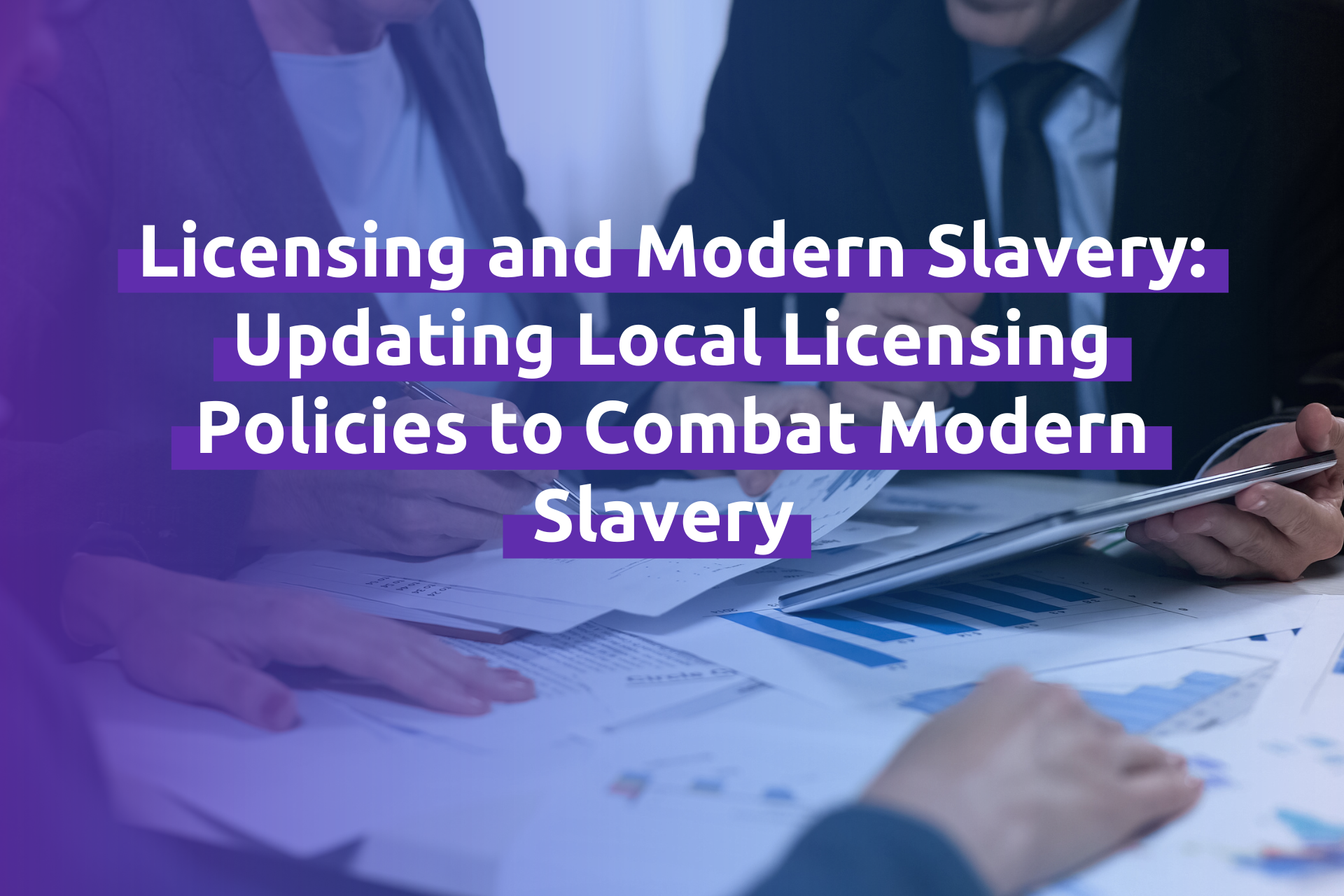
The statement of licensing policy is the cornerstone that sets out the remit and strategic objectives of local licensing authorities. In the second section of our latest report, “Understanding the Potential of Licensing Frameworks and Teams to Tackle Modern Slavery in the UK,” we delve into how local councils can update these policies to directly address modern slavery.
What is a Statement of Licensing Policy?
A statement of licensing policy is a document that provides detailed guidance on how local authorities uphold national legislation across a wide range of licensable activities within their jurisdictions. It is a local-level expansion of national guidance and legislation, tailored to specific community needs. Local councils have a statutory duty to review these policies every 3 to 5 years, involving a public consultation period of roughly 12 weeks and scrutiny by a committee of elected officials, often the licensing sub-committee.
Integrating Modern Slavery into Licensing Policies
A key challenge in addressing modern slavery is the widespread lack of awareness about its local impact among local authorities and businesses. When conducting research interviews with licensing professionals for the report, this was cited as a significant challenge by some participants. Without awareness, prevention and identification efforts are hampered, providing no deterrent to perpetrators. Embedding modern slavery information within licensing policies can serve as an educational tool, drawing the attention of local authority officers, responsible authorities, and businesses to this critical issue. This approach mirrors the inclusion of required content related to child sexual exploitation under the Licensing Act 2003.
The recommendations made in section two of our latest report, ‘’Understanding the Potential of Licensing Frameworks and Teams to Tackle Modern Slavery in the UK’’, offer valuable guidance for local authorities to integrate modern slavery concerns into their licensing policies.
Case Study from Hertfordshire
When interviewing stakeholders for our report, around a third confirmed that they had already embedded measures to prevent modern slavery within at least one licensing policy. An example of this successful integration has been demonstrated by the efforts of local licensing officers in Hertfordshire:
These officers had been working closely with the Hertfordshire Modern Slavery Partnership (HMSP). The HMSP coordinator provided guidance and support during policy review periods, helping embed modern slavery content within licensing policies during the consultation window. Notably, Hertsmere Borough Council, Dacorum Borough Council, and East Hertfordshire District Council updated their licensing policies to include definitions of modern slavery, statistics, identification and reporting protocols, details of labour market infringements, and descriptions of the forms of modern slavery relevant to their businesses.
Examples and Extracts from Hertsmere’s Licensing Policy
Hertsmere Borough Council’s Statement of Licensing Policy 2023-2028 serves as an impressive case study to illustrate the integration of modern slavery considerations into policy. Under paragraph 40.1, the council emphasises its commitment to integrating its licensing policy with strategies for various areas, including tackling modern slavery. It provides essential information about the issue, the legal framework under the Modern Slavery Act 2015, and the council’s duty to cooperate with the Independent Anti-Slavery Commissioner. It also highlights how licensed premises can unknowingly facilitate modern slavery and underlines the importance of addressing the issue to safeguard vulnerable individuals, especially during the license application and granting process.
Updating local licensing policies to directly address modern slavery is a critical step in addressing the issue. These policies serve as a guide, directing local authorities, responsible parties, and businesses toward greater awareness and action. Through recommendations such as those outlined in our upcoming report, and inspired by the proactive approach demonstrated in Hertfordshire, we can collectively work to eradicate modern slavery from our communities.


